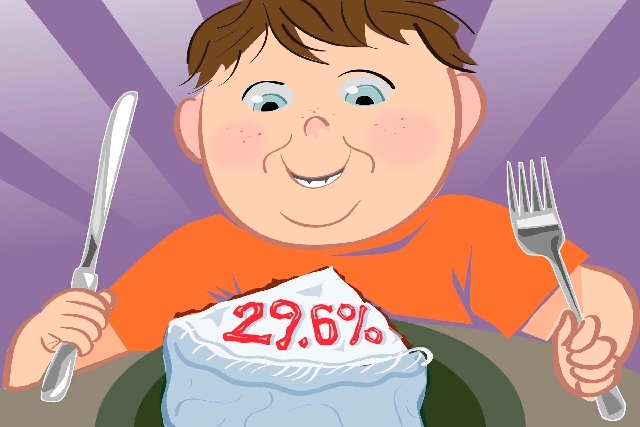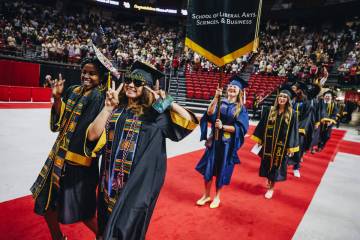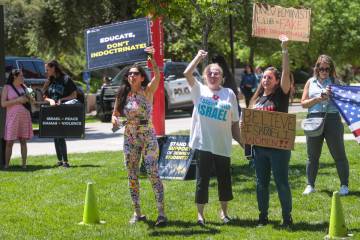Obesity rate drops for Nevada’s youngest students
Nevada kindergartners have a weighty problem, according to a statewide survey released Thursday of more than 8,000 families with children starting school.
Almost a third of the state’s youngest students are overweight or obese, found the Nevada Institute for Children’s Research and Policy, based at the University of Nevada, Las Vegas.
Local researchers and the U.S. Centers for Disease Control and Prevention agree that the 29.6 percent of Silver State kindergartners who are overweight reflects a national public health problem likely caused by increasingly sedentary lifestyles and a national rise in children with Type II diabetes.
But the figure is a decrease in the percent of Nevada’s overweight kindergartners from 2008 to 2009.
When the Nevada Institute for Children’s Research and Policy began five years ago to study the health of the state’s youngest students, about 8 percent more of the state’s kindergartners were too heavy for their heights under a calculation called the Body Mass Index.
Also, Nevada’s most recent results are slightly better than the 32 percent of kindergartners nationwide found to be overweight or obese, as reported by the American Journal of Clinical Nutrition in April.
“Progress has been made,” said Tara Phebus, executive director for the Nevada Institute for Children’s Research and Policy.
But the drop in the percent of overweight kindergartners doesn’t necessarily mean more kindergartners are healthy. Just a little more than half of Nevada kindergartners are at a healthy weight, down 3 percent from five years ago.
Researchers weren’t anticipating this, but they can explain it, Senior Research Associate Amanda Haboush said.
Although a smaller percentage of students are overweight, the percent of underweight students has increased.
About 15 percent of parents reported having children who are underweight, up from 10 percent five years ago.
This could have something to do with Nevada families finding it harder to provide for their children.
Of the survey’s income categories, only the number of families earning up to $24,999 increased.
The purpose of the survey isn’t just to tally the number of overweight children, but to connect issues such as health, behavior and health care.
This class of kindergartners, the class of 2025, had a lower percentage of overweight children than the previous class.
They also watched less television, drank less soda and engaged in more physical activity, according to their parents who filled out surveys last fall.
However, fewer families are insured and fewer children have a primary care provider, the institute found.
For the first time, the institute added questions about breast-feeding because research has shown a correlation with reduced risk for allergies, obesity and diabetes.
About 47 percent of mothers breast fed exclusively when their kindergartners were a month old.
Although there seem to be correlations, “not enough is known, however, about the factors that predict (rates for obese and overweight students) in kindergarten,” according to Glenn Flores, professor at the University of Texas Southwestern Medical Center.
Knowing more about kindergarten obesity is important because adult obesity can often be tracked to that, Flores said in a co-authored study published by the American Society of Nutrition in April.
The UNLV institute is preparing for such future studies, Haboush said.
The institute requested names and contact information on this year’s survey.
That way it can track these kindergartners as they grow and see how being overweight or healthy may affect their health — and even their academics — as they mature.
More than 33 percent of Nevada youth ages 10 to 17 are also overweight or obese.
That is 2 percentage points worse than the national average, according to the 2011-12 National Survey of Children’s Health.
Contact reporter Trevon Milliard at
tmilliard@reviewjournal.com or 702-383-0279.




























